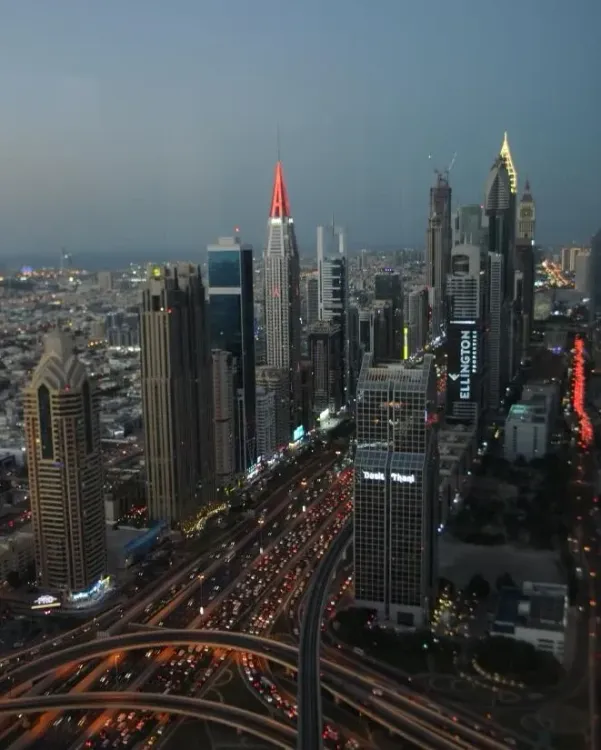How Did the UAE Economy Achieve 4% Growth in 2024?

Synopsis
Key Takeaways
- UAE's GDP grew by 4% in 2024.
- Non-oil sectors contributed significantly to growth.
- Transport and storage sector led with 9.6% growth.
- Construction sector expanded by 8.4%.
- Focus on innovation supports sustainable economic growth.
Dubai, June 16 (NationPress) The United Arab Emirates (UAE) has achieved a remarkable 4% real GDP growth in 2024, reaching an impressive 1.77 trillion dirhams (approximately 482 billion US dollars). This growth is primarily attributed to a strong performance in non-oil sectors, according to the Ministry of Economy.
Non-oil activities experienced a notable increase of 5% to 1.34 trillion dirhams, representing 75.5% of the total GDP. Meanwhile, the oil sector contributed 434 billion dirhams, as reported by Xinhua news agency.
UAE's economy minister, Abdulla bin Touq Al Marri, emphasized that these figures underscore the nation’s transition towards a knowledge-based and sustainable economy. He credited the favorable results to innovative economic policies focused on technology and enhancing the business environment.
"The UAE is steadily progressing towards the ambitions of the 'We the UAE 2031' vision, which aims to elevate GDP to 3 trillion dirhams and strengthen the country's standing as a global hub for the new economy," he stated.
Several vital sectors showcased significant growth throughout the year. The transport and storage sector led with a remarkable 9.6% increase, driven by a 10% year-on-year rise in airport passenger traffic, which served 147.8 million travelers.
The construction sector grew by 8.4%, fueled by heightened infrastructure investment, while financial and insurance activities rose by 7%, hospitality and food services by 5.7%, and real estate by 4.8%.
In terms of contributions to non-oil GDP, the trade sector ranked first at 16.8%, followed by manufacturing at 13.5%, financial and insurance activities at 13.2%, construction at 11.7%, and real estate at 7.8%.
Mazen Al-Obaid, an economics professor at UAE University, remarked to Xinhua that this growth signifies the success of government initiatives aimed at developing a diversified economy built on advanced production and service sectors.
"This growth is distinguished by its foundation in actual economic activity, rather than temporary fiscal stimulus, thereby enhancing the nation’s resilience against global market fluctuations and energy price changes," he pointed out.
He further noted that the UAE’s emphasis on innovation, digital infrastructure, and a favorable investment climate positions it as a competitive economic model, advocating for ongoing investment in national talent and high-value industries to ensure sustainable growth.









